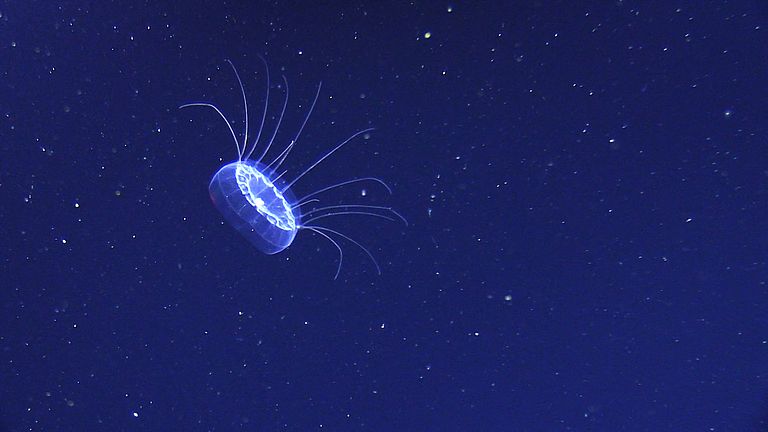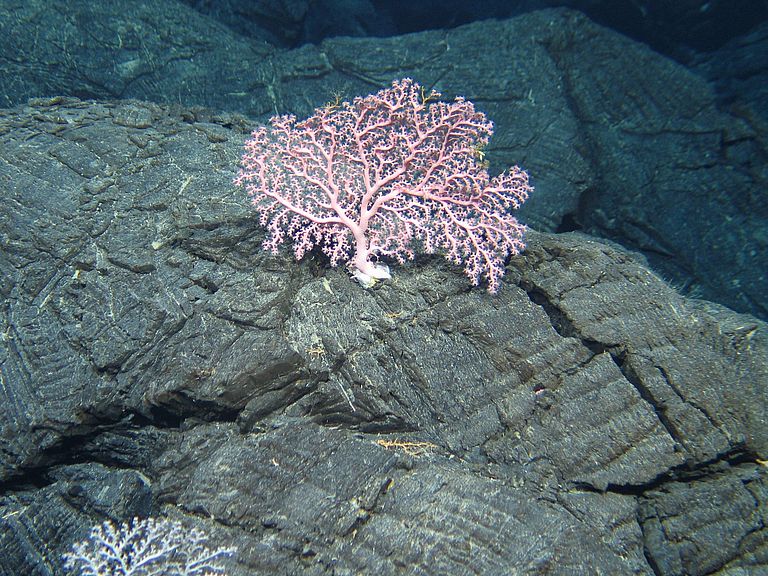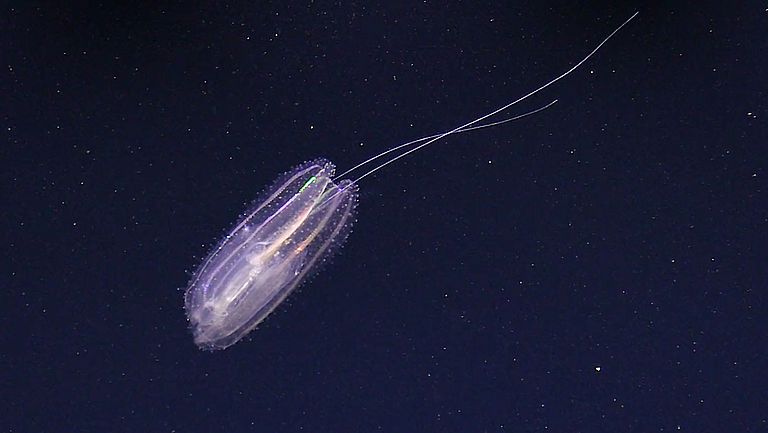Committed to climate action – but with careful consideration of impacts for the deep sea
Experts raise concerns about potential effects of so-called ocean-based climate interventions (OBCIs) on deep-sea ecosystems in a Science perspective publication
The world is facing a climate crisis, and urgent measures to mitigate rising temperatures and carbon dioxide (CO2) emissions are evolving, potentially being able to operate on vast spatial scales. In the marine area, so-called ocean-based climate interventions (OBCIs) are increasingly claimed as promising solutions to mitigate climate change. They use different technologies to remove carbon dioxide from the atmosphere and sequester the carbon in the deep sea, manage solar radiation or produce renewable energy. However, little is known about the impacts of OBCIs on ocean biogeochemistry and the biodiversity of ocean ecosystems. This is true in particular for the deep sea, which covers over 40 per cent of the Earth and contains highly vulnerable species and ecosystems.
An international team of experts therefore convened remotely as part of the Deep Ocean Stewardship Initiative’s (DOSI) Climate Change Working Group to consider impacts of OBCIs on the deep sea. The group led by Dr. Lisa Levin from the Scripps Institution of Oceanography, University of California San Diego (USA) also involved Dr. Henk-Jan Hoving, biologist and head of the deep-sea biology working group at GEOMAR Helmholtz Centre for Ocean Research Kiel (Germany). Dr. Hoving contributed expertise on food web ecology and the biology of deep-sea organisms. For their joint “Policy Forum” perspective article in the journal Science, the researchers analysed proposed OBCI approaches and assessed their potential impacts on deep-sea ecosystems and biodiversity. Several lines of evidence led the experts to raise substantial concern and call for the need for an integrated research framework to carefully consider deep-sea impacts in mitigation planning.
The deep sea is one of the least well-known areas on Earth, comprising multiple vulnerable ecosystems that play critical roles in the carbon cycle. Strong connections between the surface and deeper layers transfer impacts of climate change and other stressors throughout the water column and to the sea floor. This vast realm is already directly exposed to the effects of human-induced climate change such as warming, deoxygenation, acidification, as well as to unprecedented threats from industrial fisheries and pollution. Ocean-based climate interventions could add further pressures and threaten the functioning of deep-sea systems which are essential for the entire planet. OBCI technologies are developing rapidly, but their potential environmental impacts and effectiveness at full scale have not been evaluated sufficiently. Governance of OBCI activities is also in an early stage and poses challenges.
“It is without doubt that society needs to consider drastic measures to fight climate change”, emphasises Dr. Henk-Jan Hoving. “However, the ecological functions of many deep-sea organisms, their interactions as well as their resilience to change and disturbance are largely unknown. More research is required to evaluate how the application of OBCI engineering technologies may impact deep-sea ecosystems which are crucial for the health of our ocean.”
In their publication, the experts call for a holistic approach that considers consequences of all potential OBCI on the deep sea together. This requires a transdisciplinary international framework similar to recommendations made for solar geoengineering research. Based on an integrated approach to observation, experimentation and modelling, sustainable climate solutions could be identified for evidence-based policy decisions.
“I see open ocean-based climate intervention as a rapidly emerging arena that poses significant challenges for deep-ocean ecosystems, and thus demands new science and governance before we commit to action”, lead author Dr. Lisa Levin concludes.
Original publication:
Levin, L.A., Alfaro-Lucas, J.M., Colaço, A., Cordes, E.E., Craik, N., Danovaro, R. Hoving, H.J., Jeroen Ingels, J., Mestre, N.C., Seabrook, S., Thurber, A.R., Vivian, C., Yasuhara, M. (2023): Deep-sea impacts of climate interventions. Science, doi: 10.1126/science.ade7521

Jellyfish of the genus Solmissus, photographied during an expedition off Cabo Verde with research submersible JAGO. Photo: Henk-Jan Hoving/GEOMAR

Deep-sea coral, photographed by the Remotely Operated Vehicle ROV KIEL 6000 during an expedition with the German research vessel METEOR. Photo: ROV-Team/GEOMAR

Comb jelly of the genus Leucothea. Photo: Henk-Jan Hoving/GEOMAR


